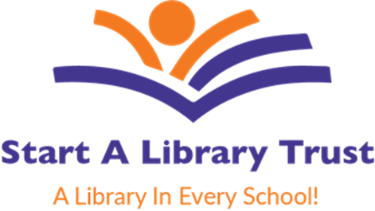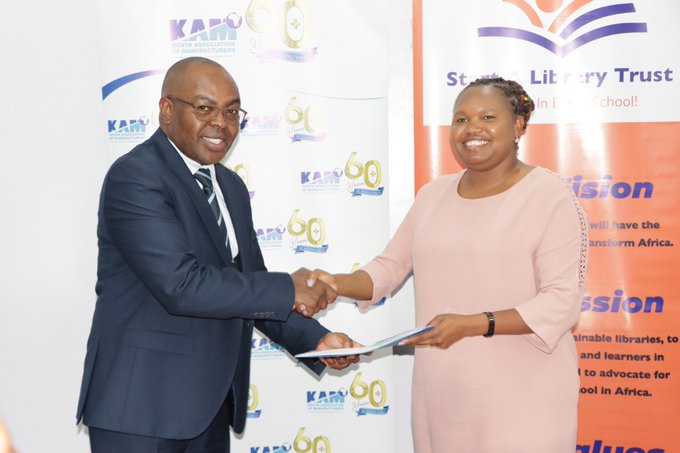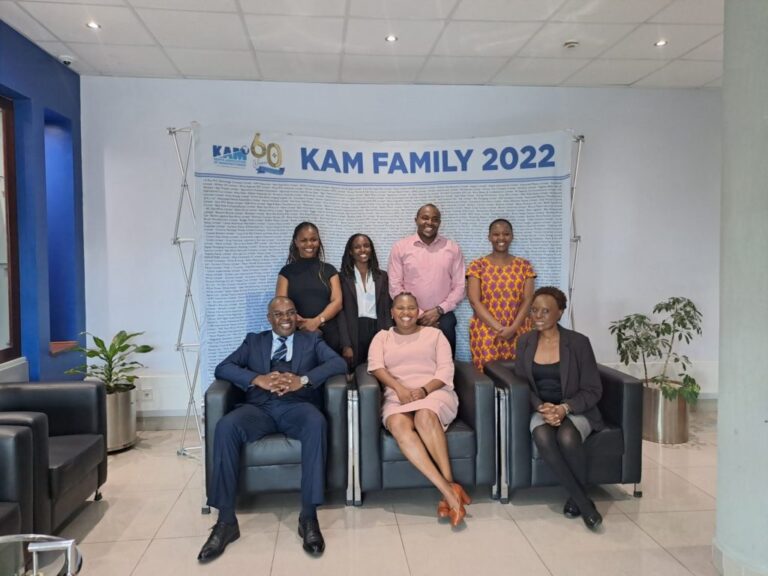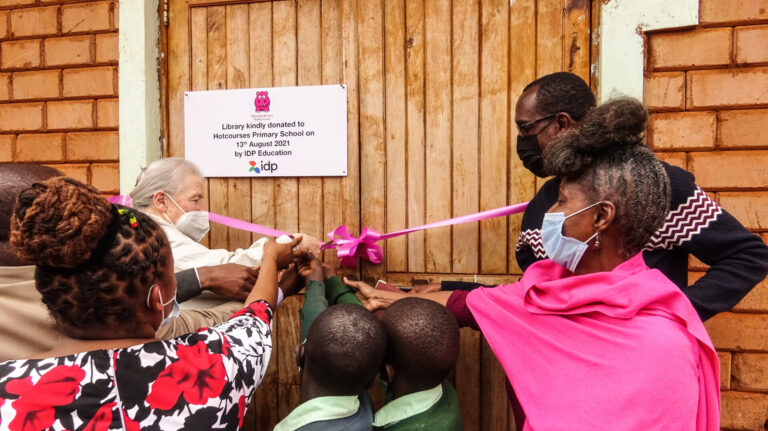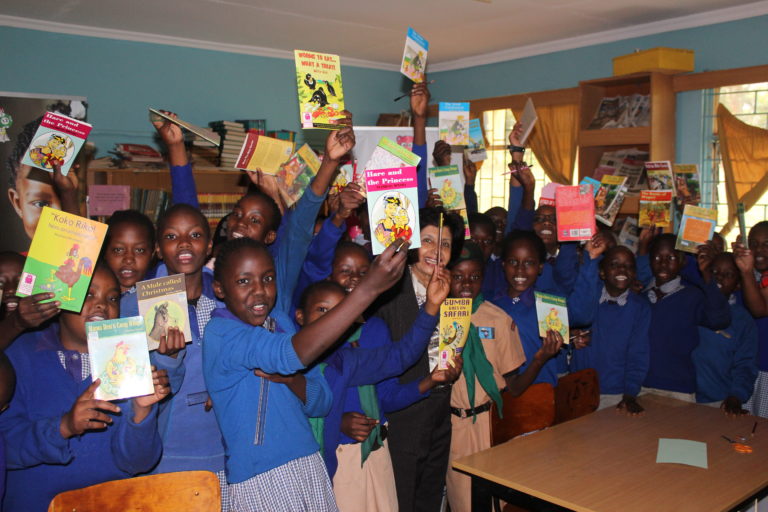Our recently signed MOU with Kenya Association of Manufacturers featured by “The Star” Newspaper.
As reported by the newspaper
“Start A Library Trust has collaborated in resource mobilisation in a memorandum of understanding with the Kenya Association of Manufacturers to set up effective model libraries in public schools.
They will focus on public primary schools in the 10 most marginalised counties.
They are Garissa, Turkana, West Pokot, Isiolo, Wajir, Mandera, Lamu, Marsabit, Tana River and Samburu.
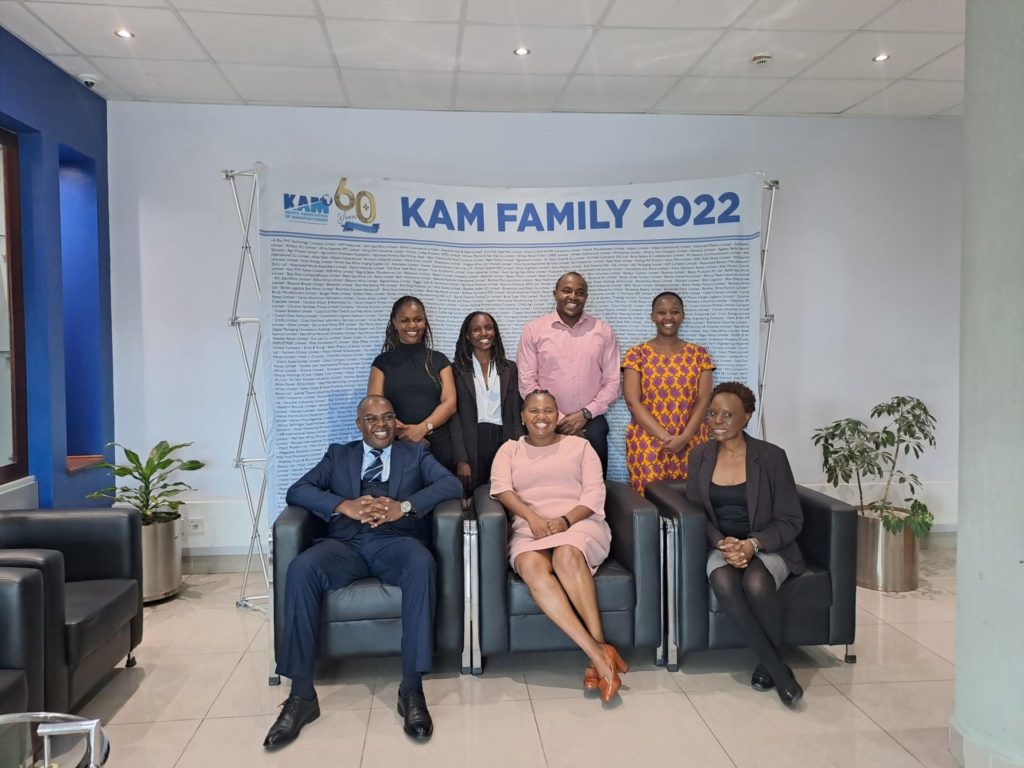
“The role of the private sector and corporate foundations is key to economic development, life transformation and empowerment of societies in which they operate,†KAM CEO, Antony Mwangi said.
“We are committed to making a difference through our Environmental, Social and Governance arm.â€
The initiative aims to establish 100 school libraries in the next three years, equipping approximately 40,000 learners and 600 teachers with enhanced literacy and teaching skills.
Learners will be allowed access during the set time by the curriculum for library lessons for all grades. They will also get to participate in after-school book clubs.
“Learners in Arid and Semi-Arid areas often face education marginalisation caused by poverty, drought, ethnic conflict, poor infrastructure and social-cultural factors, Evelyne Mwandia,†SAL executive director said.
“Even though learners in these counties can excel academically, poor literacy proficiency coupled with a lack of parental guidance affects performance and they often struggle to fit in the competitive economic environment.â€
Surveys across Turkana have established that it has the highest illiteracy rate, with 82 per cent of the community not having attended formal education.
SAL will focus on ensuring no child is left behind.
With a lot of emphasis on literacy and in the Competence Based Curriculum, Mwandia said the libraries will complement those specific lessons since most schools do not have reading materials.
Studies show that nine out of every 10 African children are not able to read and learn numbers at the age of 10.
If children are unable to get certain literacy concepts by age of 10, they are going to be completely unable to accomplish much in life.
“Our libraries focus on improving literacy skills such as comprehension, fluency, vocabulary, writing and spelling,†Mwandia said.
Story books are language textbooks that impact literacy, stimulate minds, spark creativity, teach life skills, transform narratives, and nurture critical and creative thinking.
According to an assessment report by Usawa Kenya, it revealed that having a library in a school is associated with seven marks improvement in the mean score.
SAL already has 250 school libraries across 21 counties, with 22 having been established this year.
In the evaluation of their impact on children reading culture, Mwandia said learners have been religiously attending library lessons, reading at least a book a week with shared reviews on their reading diaries, participating in reading and writing programs such as read-aloud, spelling bee and writing challenges.
The introduction of mandatory library lessons in the curriculum showed the government is committed to the improvement of literacy skills in school-going children.
Mwandia said there is a need for the government to formulate and effectively implement the basic education library policy, to govern, start and run active libraries in basic education institutions and to endorse reading programs to promote a reading culture.
She urged like-minded organizations, and partners to come on board in support of the initiative as the need to give children access to books through vibrant libraries in their schools is dire.
“Children need to be literate to understand and comprehend what they are being taught,†Mwandia said.
See original post here
https://www.the-star.co.ke/news/realtime/2022-12-06-public-schools-in-10-marginalised-counties-to-benefit-from-libraries/
